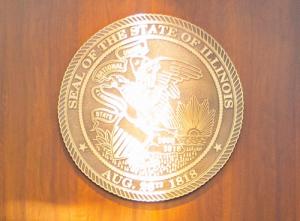Illinois Adopts LDC Oversight Plan

In a decision that includes no new spending appropriations, the Illinois Commerce Commission has signed off on a new monitoring protocol with respect to a natural gas local distribution company’s (LDC’s) System Modernization Program (SMP), which endeavor is aimed at replacing the LDC’s aging and deteriorating natural gas pipelines across Chicago. The new plan, which pertains to Peoples Gas Light & Coke Company, includes stronger regulatory oversight by the commission to ensure the project is properly managed and costs are controlled.
The commission termed “unprecedented” the SMP that Peoples Gas is engaged in, observing that Chicago’s natural gas delivery system consists of tens of thousands of segments of natural gas pipeline, some of which are more than 100 years old and made of deteriorating materials. The commission elaborated that replacement of old and degraded pipes became a national priority after high-profile pipeline explosions in San Bruno, California in 2010 and Allentown, Pennsylvania in 2011. In response to such incidents, the commission in 2013 engaged an independent consultant to audit and report quarterly on the scope and pace of the Peoples Gas project, while providing recommendations to improve efficiency.
The commission reported that the LDC’s pipeline project calls for the replacement of 2,000 miles of at-risk mains, the upgrading of 300,000 customer services, and the relocation of gas meters from inside customer premises to outside. The plan encompasses a 30-year time period and relies on the following key provisions to control the cost, pace, and scope of the SMP:
- Rigorous regulatory oversight and assessment tools, including longterm annual and quarterly reporting and performance metrics that will measure the company’s progress in targeting the highest-risk pipes, reducing the risk of the system as a whole, and managing SMP costs;
- New reporting metrics, which had been sought by several parties, including the Illinois Attorney General’s office, which requirements will allow stakeholders to better monitor progress of the project;
- The hiring of two independent consultants, one to assist the commission in auditing the cost of the SMP, and a second to help the commission in evaluating the LDC’s ongoing project management of the SMP; and
- Creation of a pilot program through 2021 to determine the value of advanced methane detection technology, which term was added at the urging of the Citizens Utility Board and the Environmental Defense Fund; the provision directs Peoples Gas to submit annual reports to the commission concerning program methodology, costs, benefits, results in terms of annual methane leak flow rate reduction, and other potential uses for the technology.
In a statement accompanying release of its decision, the commission pointed out that its staff had recently announced a forthcoming stipulated agreement in a pending docket in which the company’s Qualifying Infrastructure Plant (QIP) rider mechanism was under review. The commission related that the settlement will address questions that arose in conjunction with the commission’s investigation into the 2014 costs of the SMP.
The commission stated that the agreement provides for both a refund to customers and a reduction in the LDC’s present QIP adder. The changes were deemed appropriate to account for major cost overruns, delays in permitting and material procurement, and inadequate management oversight during the 2014 time frame.
In discussing the QIP, the commission said that the Illinois General Assembly in 2013 passed a law authorizing gas utilities to recover, through a QIP, the costs of infrastructure upgrades, such as
- replacements of old and deteriorating pipes,
- increases in system pressure, and
- the relocation of meters outside of buildings, where they are easier to read, inspect, and repair.
That QIP legislation set an annual amount that can be recovered through the QIP rider at 4% of base delivery revenues, or 5.5% in any given year.
The commission noted that Peoples Gas appears before the commission each year to request recovery of eligible project costs pursuant to its QIP mechanism, with the commission then obligated to approve QIP recovery if the associated costs have been shown to be reasonable and prudently incurred. Illinois Commerce Commission v. The Peoples Gas Light & Coke Co., 16-0376, Jan. 10, 2018 (Ill.C.C.).



